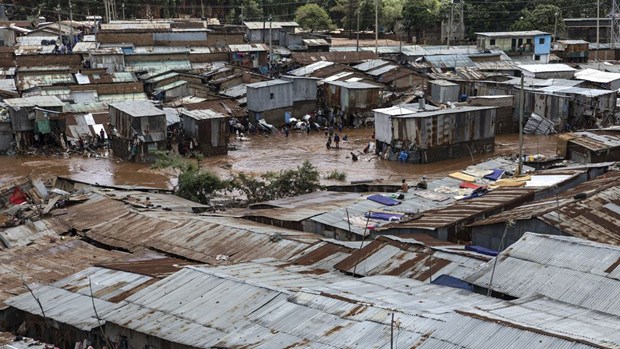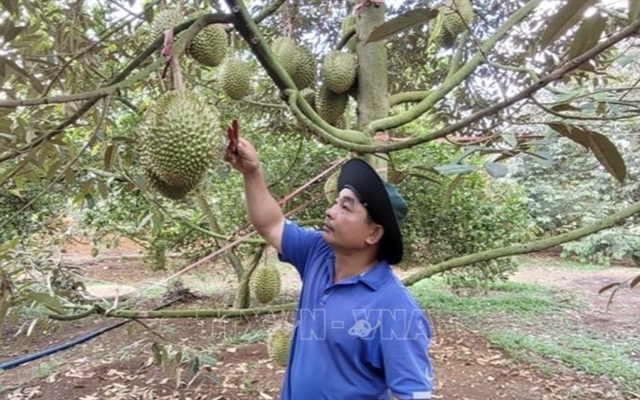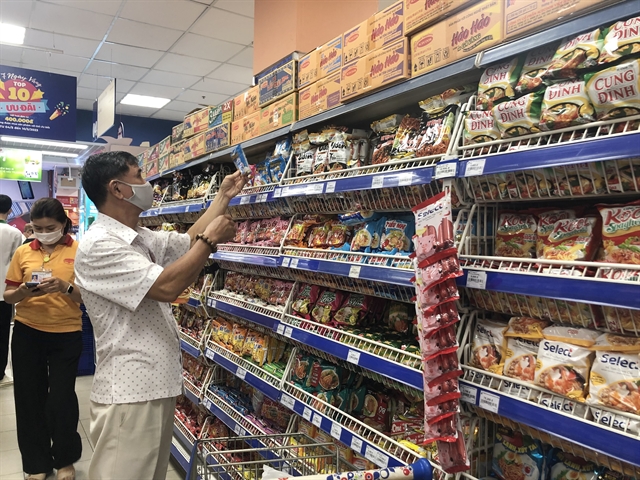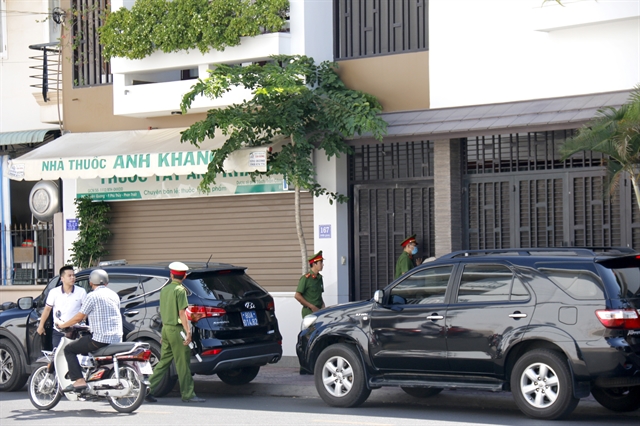 Society
Society

Authorities in the provinces in the Cửu Long (Mekong) Delta and Cần Thơ City are dredging irrigation works and storing fresh water to cope with saltwater intrusion during the dry season.
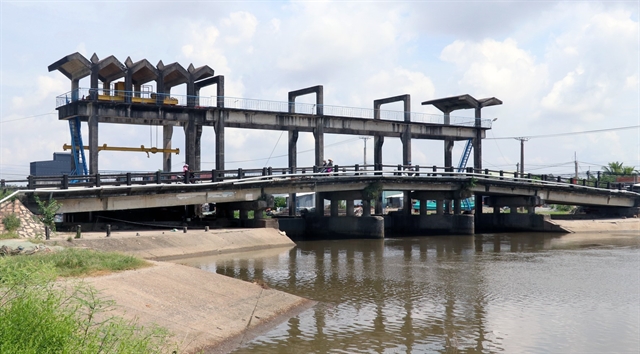
|
| A sluice in a coastal commune in the Mekong Delta province of Kiên Giang prevents saltwater intrusion. – VNA/VNS Photo Lê Huy Hải |
HCM CITY — Authorities in provinces in the Cửu Long (Mekong) Delta and Cần Thơ City are dredging irrigation works and storing fresh water to cope with saltwater intrusion during the dry season.
Saltwater intrusion is expected to be more severe this year because of low flooding levels and lower than usual rainfall during the rainy season, according to local authorities.
During the dry season, saline intrusion will occur earlier than usual, causing a shortage of fresh water for agricultural production, according to the Southern Institute of Water Resources Research.
Kiên Giang Province's People’s Committee has told agencies to dredge irrigation canals to improve water storage and to build temporary dams to prevent saline intrusion.
The province plans to complete construction of 173 temporary dams by mid-month. The affected coastal areas are located from Rạch Giá City to Hà Tiên City, along the Cái Lớn - Cái Bé rivers, and in the U Minh Thượng area.
Water with a salinity of 0.4 per cent is expected to enter 40km deep into the Cái Lớn River in January, according to the Kiên Giang Centre for Hydro-Meteorology Forecasting.
The highest salinity rate is expected by the end of April and early May.
In Trà Vinh Province, sluice gates are being closed when the salinity reaches more than 0.1 per cent.
The province's Department of Agriculture and Rural Development is continuing to repair sluice gates, dredge irrigation works, and clear water hyacinth and other obstacles on irrigation canals to facilitate the flow of water to fields.
In August, Bến Tre Province upgraded irrigation works and instructed local residents to store fresh water.
Nguyễn Quang Thương, deputy head of Bến Tre’s Irrigation and Storm and Flood Prevention and Control Sub-department, said: “The rainy season is ending and saltwater has intruded into the province’s main rivers.”
Cần Thơ City is located 65km from the sea and is normally not affected by saltwater intrusion, but authorities are taking similar measures because of the impact of climate change.
Nguyễn Chí Kiên, deputy director of the Cần Thơ Department of Agriculture and Rural Development, said that rising sea levels had caused saltwater to enter more deeply into rivers and canals in the city.
The salinity of the Hậu River, a tributary of the Mekong, has reached 0.22 per cent, exceeding the permitted level for household use and agricultural production, according to the Cần Thơ Centre for Environmental and Natural Resource Monitoring.
Authorities in the delta’s coastal provinces have told farmers to plant the 2019-20 winter-spring rice early to avoid saline intrusion at the end of the crop.
Sóc Trăng Province, for example, has urged farmers to sow the winter-spring rice crop 15 to 30 days earlier than they normally do.
Nguyễn Thành Phước, head of the Sóc Trăng Sub-department of Plant Cultivation and Protection, said that more than 23,000ha in the winter-spring rice would be sown earlier than usual.
In Trà Vinh Province, at least 66,000ha of the winter-spring rice crop will be sown between November 20 and December 30, according to Phạm Minh Truyền, director of the province’s Department of Agriculture and Rural Development.
For the winter-spring crop, the department has encouraged farmers to use certified seeds of rice varieties that are high quality, have short-term maturity, and are resistant to saltwater.
Farmers in Trà Cú and Cầu Ngang districts have been urged to switch from rice to other crops during the winter-spring season.
The delta expects to sow more than 550,000ha of the 2019-20 winter-spring rice crop earlier than usual, an increase of 30 per cent against the 2018-19 winter-spring crop, according to the Ministry of Agriculture and Rural Development.
Fresh water storage
Delta authorities are taking steps to help households have enough fresh water.
In Trà Vinh Province, for example, more than 9,000 households face a water shortage in the dry season, according to the province’s Clean Water and Rural Environment Sanitation Centre.
The centre will ensure that households have enough water when saltwater intrusion occurs.
Bùi Văn Mừng, director of the centre, said: “The centre has assigned staff at water supply stations to monitor high tides and pump fresh water for storage.”
The centre has also asked the province to allocate VNĐ18 billion (US$780,000) to invest in water supply pipes and other facilities.
Water pipes will transport water from water supply stations to affected areas, and water reservoirs will store fresh water. Plastic water tanks will be given to 2,000 households who are located far from residential areas.
In Cà Mau Province, as many as 13,500 households of 226,000 households in rural areas without access to tap water or groundwater are facing a severe fresh water shortage in the dry season.
Cà Mau is building water supply projects and providing water containers to poor households in areas that lack fresh water. — VNS


